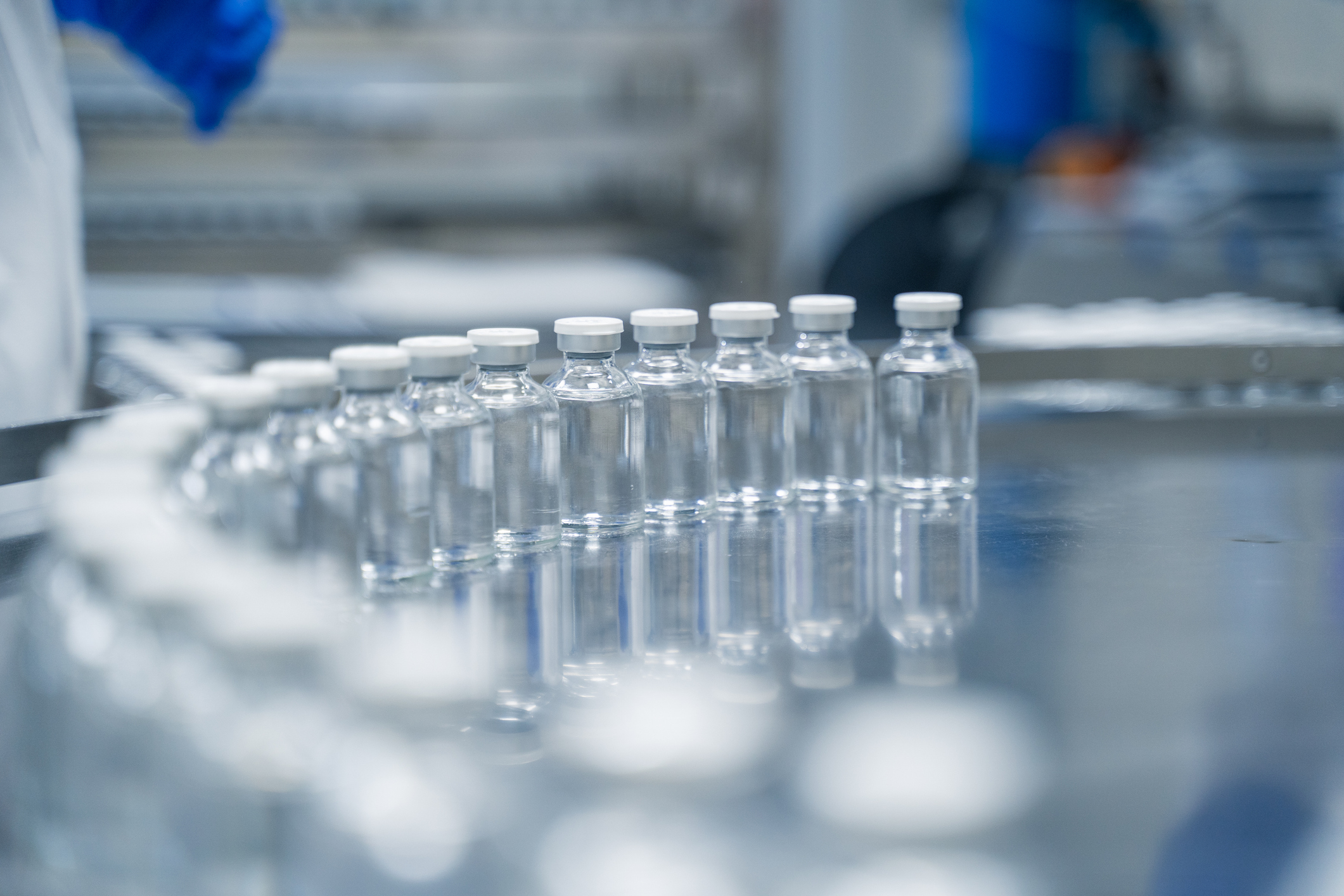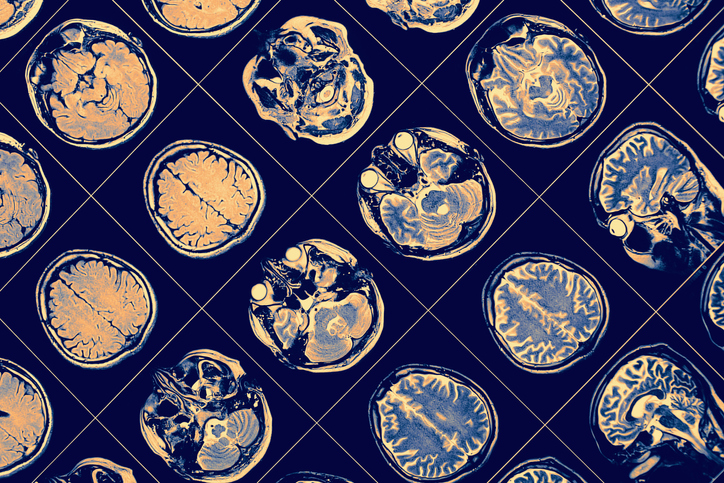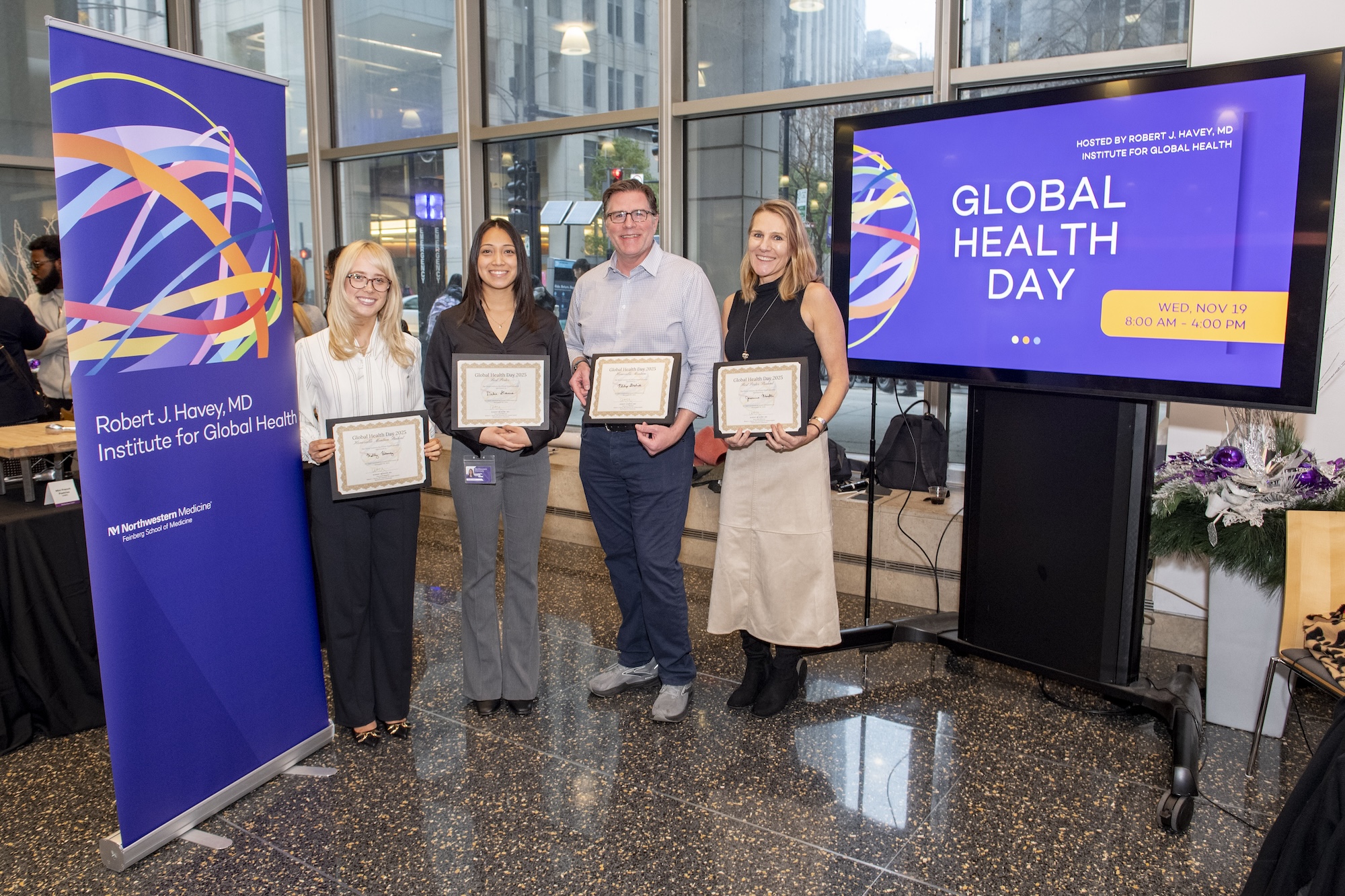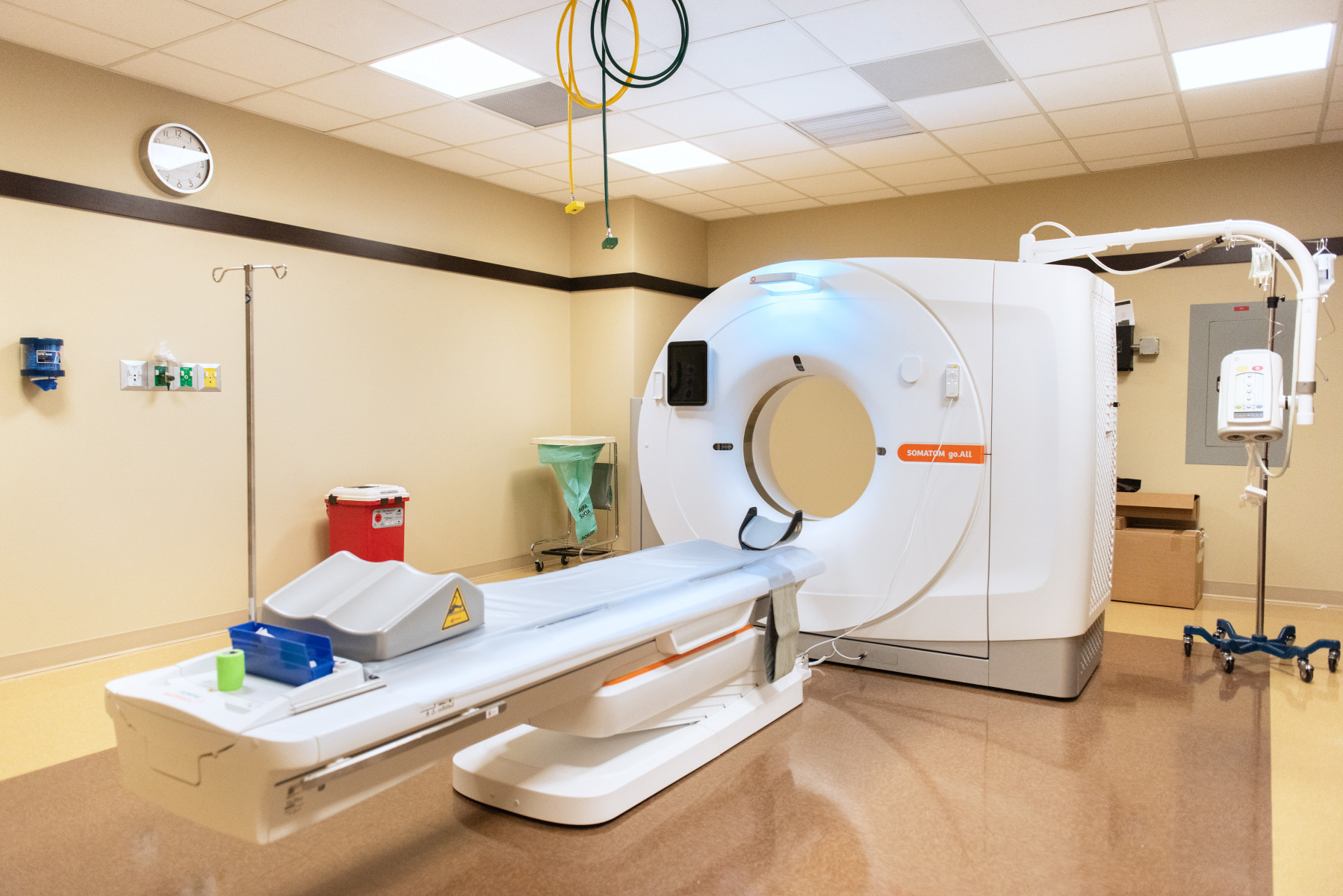Media Coverage
The work done by Northwestern University Feinberg School of Medicine faculty members (and even some students) is regularly highlighted in newspapers, online media outlets and more. Below you’ll find links to articles and videos of Feinberg in the news.
-
WebMD
–
Some People With Long COVID Tested Negative for COVID-19
Some cases of long COVID-19 might be going unidentified because the patient’s initial infection wasn’t detected. That’s according to a small, new study published in Neurology, Neuroimmunology & Neuroinflammation. “We estimated that there were approximately 10 million people in the first year of the pandemic in the U.S. who are in this predicament: who got Covid, got long Covid, but tested negative for Covid,” said Igor Koralnik, MD, who led the study and is the chief of the division of neuroinfectious diseases and global neurology at Northwestern Medicine. These so-called “negative long-haulers” should be included in trials and studies on long COVID, Koralnik said. They currently are not.
-
TODAY
–
Trying to lose weight? Why full-fat dairy may help you hit your goal
For decades, nutrition experts have steered Americans away from whole milk and other full-fat dairy products, but research over the past decade or so should lead to a change in that advice, some experts say. While there may be some fats that can be harmful to health, “not all fat is created equal,” Linda Van Horn, PhD, chief of nutrition at Northwestern University Feinberg School of Medicine, said. “Dairy fat is likely very different from beef or chicken fat,” she adds. “It may very well be that it has different biological influences that we don’t know about yet. However, data we have to suggest that butter is the exception in that it appears to have an adverse influence on health.”
-
ABC 7 Chicago
–
Northwestern studies long COVID patients who never tested positive
A woman was exhibiting COVID-19 symptoms, however she continually tested negative. She and nearly 30 other patients with long COVID symptoms, who tested negative for the virus, took part in a new study at Northwestern Medicine’s COVID-19 clinic. “We estimate that during the first year of the pandemic, about 10 million people in the U.S. were in this predicament, that they were exposed to SARS-CoV-2, developed COVID-19 and thereafter developed long COVID symptoms, but never had a positive test because they could not be tested in time,” said Igor Koralnik, MD chief of neuro-infectious diseases at Northwestern Medicine. Koralnik said post-COVID clinics shouldn’t require a positive COVID-19 test in order to provide care to long-haulers. “Those people, unfortunately, have been rejected, stigmatized, sometimes gaslighted, even by the medical establishment, because they did not have a positive COVID-19 test,” he said. Koralnik said more research is needed to determine what causes long COVID and how to effectively treat its many symptoms.
-
Fox 32 Chicago
–
New study suggests some negative COVID tests weren’t accurate
New research suggests that some people who had previously tested negative for COVID may not have been negative at all. This new information is now changing the way doctors approach long-term COVID today. The research is newly published by Northwestern Medicine and those behind it say it shows that long-term COVID clinics shouldn’t require a past positive COVID test to provide long-haul care. It is estimated that nearly 10 million Americans are dealing with long-term COVID symptoms without an official COVID diagnosis. Researchers say that could be partly attributed to the limited availability of testing at the beginning of the pandemic.
-
CBS Chicago
–
Heat stroke vs. heat exhaustion: Know the difference and how to avoid both
With temperatures rising to dangerous levels, your body may experience signs of illness from excessive heat exposure. According to the Centers for Disease Control and Prevention (CDC), people who undergo heat exhaustion will experience symptoms including dizziness, excessive thirst, heavy sweating, nausea, and headaches. This can potentially lead to heat stroke. Signs of heat stroke include dizziness and headache. Still, a person will also suffer from confusion, skin being hot to the touch, and becoming unconscious – causing death or permanent disability if not treated immediately. Dr. Javier Guevara, health system clinician of emergency medicine at Northwestern University Feinberg School of Medicine, said everyone is at risk, especially children and people over 65. “Also, people who usually overexert themselves with regular exercise, or their chronically ill – heart disease, diabetics – are at the highest risk for heat stroke or heat-related illnesses,” he said. Dr. Guevara added he’s expecting more patient visits to the emergency room due to the heat.
-
USA Today
–
Dads develop postpartum depression, too, and it can impact their child’s mental health
It’s not just moms. Dads can develop postpartum depression, too. As a new postpartum pill for women gains national attention, health experts say it’s also important to highlight men’s mental health needs after having a baby, with research showing 1 in 10 fathers experience postpartum depression and anxiety. A new study also suggests addressing paternal mental health is vital for baby’s health after finding children born to dads with depression are at increased risk of developing depression themselves. “Thinking about child outcomes, we thought historically that if mom is better, then the child is safe and well, and they will go through a normal development,” said Sheehan Fisher, PhD, associate professor of psychiatry and behavioral sciences at Northwestern University Feinberg School of Medicine, who is not affiliated with the study. “But if we treat the mom and the father is not well, then the child is at risk for mental health issues.”
-
The Washington Post
–
Study: Many users of skin-lightening products are unaware of risks
Those who rely on skin-lightening products are largely unaware of their potential harm and don’t consult a doctor before trying them. Nearly half of the participants said they didn’t know what active ingredients were in the skin-lightening products. That’s of particular concern, the researchers write, because of the risks posed by skin-lightening products, many of which are unregulated and can be adulterated with toxic ingredients such as mercury. In a news release, Roopal Kundu, MD, the founder and director of the Northwestern Medicine Center for Ethnic Skin and Hair and one of the study’s authors, said it’s important for dermatologists to understand the cultural factors behind skin lightening, even among patients who lighten their skin for medical reasons. “Cultural mindfulness … allows for the safe, effective, comprehensive and compassionate treatment of dermatological disease across all communities,” said Kundu, who is also a professor of dermatology and medical education at Northwestern Feinberg School of Medicine.
-
The Washington Post
–
Study: Many users of skin-lightening products are unaware of risks
Those who rely on skin-lightening products are largely unaware of their potential harm and don’t consult a doctor before trying them, according to an analysis in the International Journal of Women’s Dermatology. They’re also more likely to exhibit colorist attitudes – beliefs that those with lighter skin are more beautiful and socially advantaged than those with darker skin – than people who don’t use such products. In a news release, Roopal Kundu, MD, the founder and director of the Northwestern Medicine Center for Ethnic Skin and Hair and one of the study’s authors, said it’s important for dermatologists to understand the cultural factors behind skin lightening, even among patients who lighten their skin for medical reasons. “Cultural mindfulness … allows for the safe, effective, comprehensive and compassionate treatment of dermatological disease across all communities,” said Kundu, who is also a professor of dermatology and medical education at Northwestern Feinberg School of Medicine.
-
TIME
–
Celebrities Are Getting Full-Body Health Scans – Should You?
Convincing Americans to get their recommended health screenings can be an uphill battle. Data show that lots of people skip suggested cancer screenings even though they’re typically covered by insurance. Some studies have found that full-body scans can catch early signs of cancer and other health problems in some patients. “People [think] that knowing about something is always good,” says Dr. Jeffrey Linder, chief of general internal medicine at the Northwestern University Feinberg School of Medicine. But “there’s a reason why doctors don’t test everybody for everything all the time.” Many people have nodules, cysts, or masses in their bodies that could look concerning on a scan, but are actually harmless; similarly, some test results may fall outside the “normal” range without actually being dangerous, Linder says. It’s hard not to get anxious about an abnormal finding, though, so many patients end up scheduling follow-up tests that may be risky, invasive, expensive, and ultimately unnecessary, he says.
-
Yahoo! News
–
Vaginal penetration can be painful for some. But sex isn’t supposed to hurt, say experts.
If sex is uncomfortable or even painful for you, it’s understandable to wonder if sex is just supposed to hurt. And, if this has been the way sex has always been for you, you may simply think this is the way it should be. Doctors say they see this regularly in patients. “This is a big issue we have as ob-gyns — that there is almost this expectation that sex is supposed to hurt,” Dr. Lauren Streicher, a clinical professor of obstetrics and gynecology at Northwestern University Feinberg School of Medicine, explains. “People who have always had pain just assume that this is normal. It’s not.” Streicher recommends making a specific appointment to talk to your ob-gyn about having pain during sex rather than bringing it up at a well-woman visit. “So many women wait until their annual visit, but there often isn’t enough time to really dive into what’s going on,” she says. “It’s meant to be a well-woman visit, but this isn’t a well woman — it’s a problem.”






